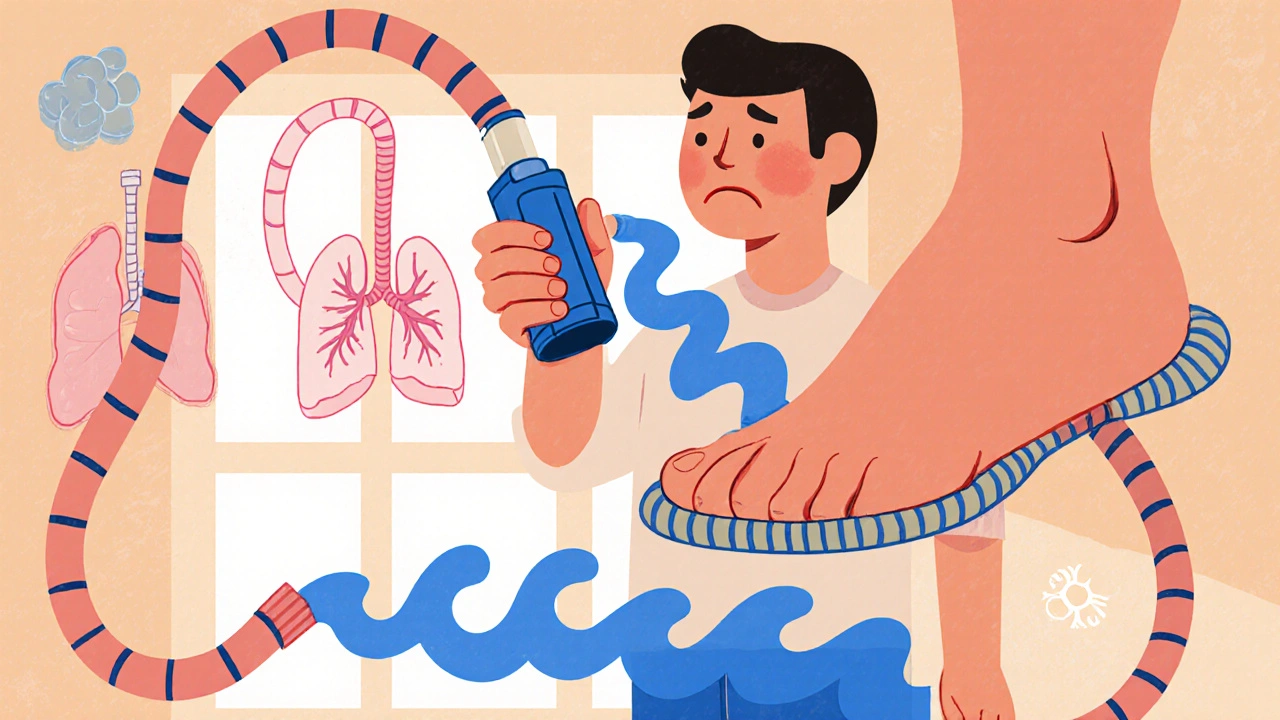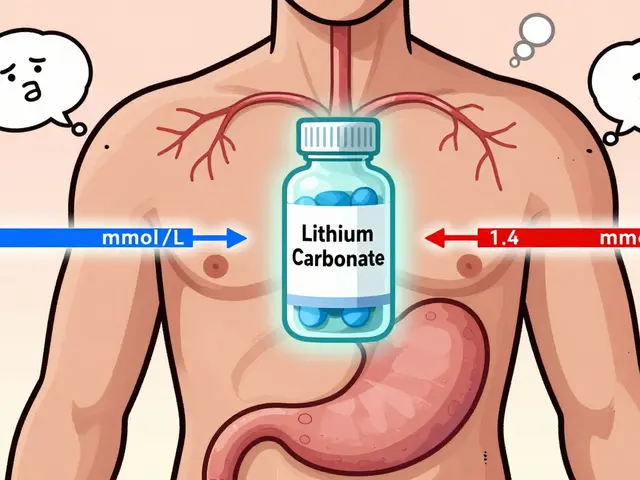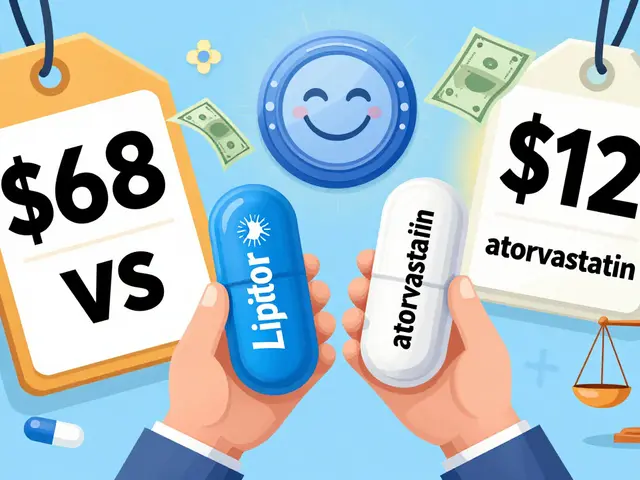Bronchodilators: How They Open Airway Paths & What Choices You Have
Ever felt your breath catch while climbing stairs or talking on the phone? That tight feeling usually means something is narrowing the tubes that carry air to your lungs. Bronchodilators are meds designed to relax those tiny muscles and widen the passageways, letting oxygen flow more freely.
Prescription Bronchodilators – What You Should Know
The most common prescription bronchodilators belong to two families: short‑acting beta agonists (SABAs) such as albuterol, and long‑acting beta agonists (LABAs) like salmeterol. SABAs work in minutes and are meant for sudden flare‑ups – the classic “rescue inhaler” you keep handy. LABAs take longer to kick in but stay active for up to 12 hours, so doctors pair them with steroids for steady control.
When you use a prescription inhaler, proper technique matters more than the drug itself. Shake the canister, exhale fully, place the mouthpiece, inhale slowly while pressing down, then hold your breath for about ten seconds. Skipping any step can waste medication and reduce relief.
Side effects are usually mild – a jittery feeling, slight tremor, or a fast heartbeat. If you notice pounding heartbeats, severe shaking, or chest pain, stop using the inhaler and call your doctor. Remember, these drugs treat symptoms; they don’t cure the underlying disease, so regular check‑ups are still key.
Natural Alternatives – Can They Really Help?
If you’re looking for over‑the‑counter options or want to supplement prescription therapy, a handful of natural bronchodilators have some scientific backing. Caffeine, for example, relaxes airway muscles at doses found in a strong cup of coffee. The effect is modest but can give an extra push during mild wheezing.
Theophylline, derived from tea leaves, was once a prescription staple before newer inhalers took over. Today you’ll find it in low‑dose tablets for people who need a daily baseline bronchodilator. Because the drug has a narrow safety window, blood level monitoring is essential – not something you’d self‑prescribe.
Herbal extracts like lobelia and ephedra‑free blends appear in some “natural asthma” supplements. While a few small studies suggest they may open airways, quality control varies, and side effects such as rapid heart rate can pop up. Always check that the product follows Good Manufacturing Practices before trying it.
The article “Natural Bronchodilators: Best OTC Alternatives to Albuterol for Asthma Relief” highlights caffeine, magnesium, and certain essential oils as low‑risk options. Magnesium sulfate IV is used in emergency rooms, but oral magnesium tablets can modestly improve airway tone when taken regularly.
Before swapping a prescription inhaler for any natural product, talk with your healthcare provider. Mixing drugs can cause unexpected interactions, and an uncontrolled flare‑up may need immediate medical attention.
Bottom line: bronchodilators—whether prescribed or natural—work by relaxing airway muscles. Prescription options give fast, reliable relief but require proper use and monitoring. Natural alternatives might offer a gentle boost for mild symptoms, yet they lack the potency of a rescue inhaler. Keep a doctor in the loop, know how each option works, and choose the path that lets you breathe easier every day.

Bronchodilators and Corticosteroids: How Respiratory Medications Work
Bronchodilators open airways for quick relief; corticosteroids reduce inflammation for long-term control. Learn how they work together, why timing matters, and how to use them safely to manage asthma and COPD.

Top 10 Ventolin Alternatives for Asthma Relief
For those who need a reliable Ventolin substitute, understanding alternative options for asthma relief is crucial. Various short-acting beta2 agonists and inhaled solutions are available to manage asthma symptoms. Alternatives like ProAir HFA and Proventil HFA provide quick relief, while OTC options like Primatene Mist offer accessibility without a prescription. Each option comes with its own set of pros and cons, helping individuals make informed choices.





